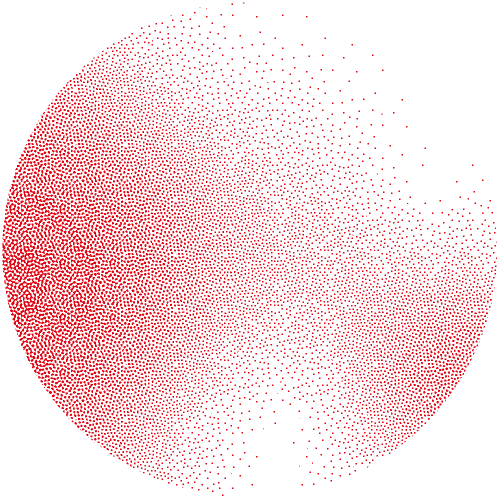ATGCCGGAATTGGCACATAACAAGTACTGCCTCGGTCCTTAAGCTGTATTGCACCATATGACGGATGCCGGAATTGGCACATAACAAGTAC
TGCCTCGGTCCTTAAGCTGTATTGCACCATATGACGGATGCCGGAATTGGCACATAACAACGGTCCTTAAGCTGTATTGCACCATATGACG
GATGCCGGAATTGGCACATAACAAGTACTGCCTCGGTCCTTAAGCTGTATTTCGGTCCTTAAGCTGTATTCCTTAACAACGGTCCTTAAGG
ATGCCGGAATTGGCACATAACAAGTACTGCCTCGGTCCTTAAGCTGTATTGCACCATATGACGGATGCCGGAATTGGCACATAACAAGTAC
TGCCTCGGTCCTTAAGCTGTATTGCACCATATGACGGATGCCGGAATTGGCACATAACAACGGTCCTTAAGCTGTATTGCACCATATGACG
GATGCCGGAATTGGCACATAACAAGTACTGCCTCGGTCCTTAAGCTGTATTTCGGTCCTTAAGCTGTATTCCTTAACAACGGTCCTTAAGG


Spring School Structure-based Computer-aided Drug Design



02 May 2024

02 May 2024




For-profit: 2000 CHF

Overview
Computational methods have played a central role in drug discovery during the last decades. They now constitute an essential part of the discovery pipeline, notably in pharmaceutical companies. The emergence of new approaches to predict the 3D structure of therapeutical target proteins is expected to further reinforce these approaches. Computer-aided drug design (CADD) tools are generally classified into two categories: (i) ligand-based, which use the information implicitly included in existing ligands and (ii) protein structure-based, which use the targeted protein structure. Structure-based CADD can support hit identification and lead optimization by tackling several tasks, including small-molecule binding site detection, prediction of how small molecules bind to the protein target, or the estimation of their affinity. This teaching will focus on structure-based CADD.
During the School, significant time will be devoted to hands-on and the program will be divided into two main topics:
- How 3D structures of targeted proteins are obtained experimentally or theoretically, how they are stored, annotated and disseminated, how far they can be trusted and corrected
- What are the standard and novel approaches in structure-based computer-aided drug design, how they work, what can be expected from them.
Audience
This course is addressed to life scientists, biomedical researchers and bioinformaticians (mostly PhD students and postdocs).
Learning outcomes
At the end of the course, the participants are expected to:
- Understand the main concepts of structure-based CADD
- Understand the approaches behind structure-based CADD, how they work, what we can expect from them, and what are their limitations
Prerequisites
Knowledge / competencies
This course is designed for beginners and there is no requirement.
Technical
You are required to bring your own laptop, more instructions will be communicated to the course participants.
Schedule - CET time zone
May be subject to modifications
D1 - Monday 10 June
Morning: Experimental 3D structure determination
Trainer: Julia Santiago, UNIL, Lausanne, CH
Afternoon: Protein structure modelling by homology and deep learning
Trainers: Janani Durairaj & Jérôme Eberhardt, SwissModel, Basel, CH
Evening: social dinner
D2 - Tuesday 11 June
Morning: Confidence in and correction of experimental 3D Structures
Trainer: Robbie Joosten, PDBRedo, NL
Afternoon: ProteinsPlus - Supporting Structure-Based Design on the Web
Trainer: Christiane Ehrt, Universität Hamburg & de.NBI - German Network for Bioinformatics Infrastructure, DE.
D3 - Wednesday 12 June
Morning: Exploring small molecule structure data in PDBe and PDBe-KB
Trainers: Preeti Choudhary & Ibrahim Roshan Kunnakkattu, PDBe, EBI, UK
Lunch time: Social activity.
Afternoon: Beyond Structure-based CADD
Trainer: Antoine Daina, SIB MMG, Lausanne, CH
D4 - Thursday 13 June
Morning: Small Molecule Docking
Trainer: Ute Röhrig, SIB MMG, Lausanne, CH
Afternoon: Structure-based virtual screening
Trainer: Carlos Oscar Sorzano, CSIC, Madrid, ES
Evening: Social dinner
D5 - Friday 14 June
Morning: Molecular Modelling, MD simulations and binding free energy estimation.
Trainers: Annick Dejeagere & Roland Stote, IGBMC, ESBS, Strasbourg, FR
Afternoon: Deep learning in SB-CADD
Trainer: Kieran Didi, Cambridge University, UK
Application
The registration fees for academics are 500 CHF and 2000 CHF for for-profit companies. The fees include two social dinners (Monday and Thursday evening) and a social activity. Other meals and accommodation are at your own expenses.
Would you please let us know your motivation and background in the "Comment" field of the application form? Thank you.
You will be informed by email of your registration confirmation, which may take some time. Upon reception of the confirmation email, participants will be asked to confirm attendance by paying the fees within 5 days.
Applications close on 02/05/2024. Deadline for free-of-charge cancellation is set to 02/05/2024. Cancellation after this date will not be reimbursed. Please note that participation in SIB courses is subject to our general conditions.
Venue and Time
This course will be take place at the University of Lausanne, more info will be provided in due time.
The School will start at 9:00 and end around 17:00. Precise information will be provided to the participants in due time.
Additional information
Organization: Prof. Vincent Zoete, associate professor at UNIL and group leader at SIB
Coordination: Grégoire Rossier
You are welcome to register to the SIB courses mailing list to be informed of all future courses and workshops, as well as all important deadlines using the form here.
Please note that participation in SIB courses is subject to our general conditions.
SIB abides by the ELIXIR Code of Conduct. Participants of SIB courses are also required to abide by the same code.
For more information, please contact training@sib.swiss.